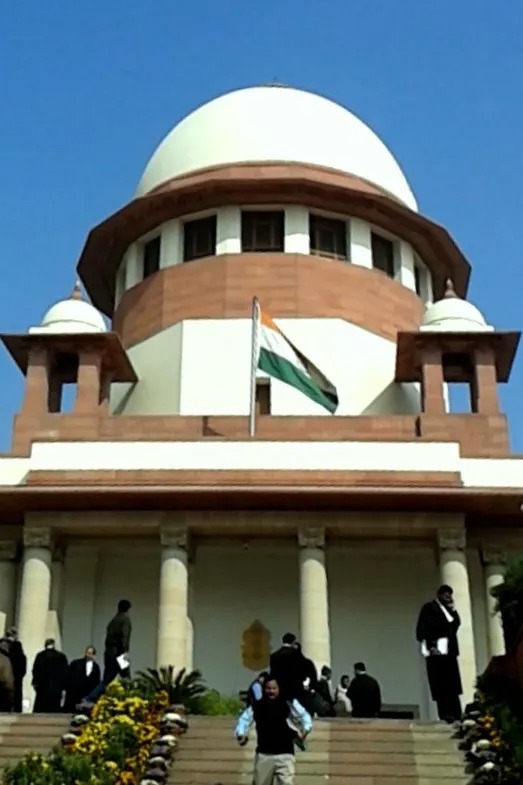1. BY this complaint under Section 17 read with Section 12 of the Consumer Protection Act, 1986 (for short the "C.P. Act"), complainant-M/s. Pradeep Industries a partnership firm claims Rs. 13,03,625/- towards sum assured and Rs. 1,23,821/- as custom duty, besides Rs. 18,970/- as miscellaneous expenses, total Rs. 14,46,416/- from respondent, the Oriental Insurance Co. Ltd.
2. FACTS of the case are more or less admitted. The complainant-firm had on 16.2.1998 taken out a Marine Cargo "B" type policy from respondent-insurer, insuring 250 metric tons of toor whole for a sum of Rs. 30,00,000/- during voyage from Yangon (Myanmar) to Bombay Port. Out of this lot of 250 metric tons, 2000 bags containing net weight 98.686 metric tons of toor whole costing Rs. 13,03,626/- was loaded in a vessel M.V. Jaipur from Angon Myanmar to Bombay Port (India) on 12.4.1998. On way, the vessel caught fire on 13.4.1998. The vessel reached Bombay Port on 18.4.1998 but the same was taken back to mid-sea by way of safety measure under orders of the Port Authorities. The cargo on board "S.S. Jaipur" was inspected by medical officers of the Port Health Organization on 17.3.1999 and it was observed that in hold Nos. 2 and 3 smokes and fumes were emanating and the cargo was burnt. In hold No. 1 also smokes and fumes were coming out through gaps of Hatch Lids. They advised the crew not to open the lids due to fear of fire. However, it appears that before pulling out the ship a part of cargo 317 bags from hold No. 2 were discharged into barges but the same were also torn and mutilated due to fire. It was for the first time on 3.6.1999 that the Bombay Port informed the complainant-consignee that if the cargo of 317 bags of toor whole was not cleared by 21st June, 1999, the Bombay Port authorities will sell the cargo. The consignee''s clearing agent inspected the cargo and found that the same did not belong to them. Their cargo was loaded in hold Nos. 1 and 3. The complainant thereafter informed the respondent-insurer about the loss.
Sharma and Company, Marine Insurance Surveyors and Assessors appointed by the respondent-insurer, carried out survey of the imported consignment and came to the conclusion that it was a case of total loss of 98.636 metric tons of toor hole. They observed:
"As the consignment was damaged/short landed while the same was under the custody of a steamer agent, we advised the consignee to hold the steamer/liner agent liable for the loss that the consignee sustained thereto. Anyhow, as the vessel declared as "loss under General Average Clause" the claim may be settled accordingly and as per the pending Court directions."
The respondent-insurer, however, instead of settling the claim referred the case for further opinion of foreign-based Surveyors and Consultants ''W.K. Webster and Co.'' and ''Richards Insurance Service Ltd.'' for second and third opinion. On receipt of their reports, the respondent repudiated complainant''s claim vide letter dated 31.12.1999 on the ground that the damage to the cargo was due to delay and spontaneous combustion which though caused by an insured peril, was not covered by the policy and fell within its exclusion Clause No. 4.5. Aggrieved by this repudiation, the complainant has approached this Commission under Sections 17/12 of the C.P. Act attributing deficiency in service to the respondent-insurer and claiming Rs. 13,03,625/- towards cost of consignment, Rs. 1,23,821/- as custom duty and Rs. 18,970/- as miscellaneous expenses, total Rs. 14,46,416/- from the respondent.
3. THE claim is resisted by the respondent-insurer reiterating their earlier stand that the loss to the goods was caused due to spontaneous combustion not covered by the policy as also due to delay expressly barred by the exclusion Clause 4.5.
We have heard Mr. Deepesh Joshi, learned Counsel for complainant and Mr. Mahavir Bhatnagar, learned Counsel for respondent.
4. AS already stated it was a case of total loss of the consignment insured, caused by fire and ingress of water which appeared to have been poured in the holds by the persons incharge of the ship to extinguish the fire. The entire consignment was insured with the respondent and the incident leading to the loss had occurred during existence of the policy. The question thus arises whether the respondent-insurer were justified in repudiating the claim. Needless to say that it is for them to establish the ground of repudiation.
Under the policy the risks covered, amongst others included: "1.1.1 fire or explosion, 1.2.3. entry of sea lake or river water into vessel craft hold....."
The policy is silent as to the cause of occurrence of any of these risks and so notwithstanding the cause as to how the fire occurred or the water entered into the vessel, the loss caused by any of these risks or both, was squarely covered by the policy.
5. MUCH stress has been laid by the learned Counsel for the respondent-insurer on the fire having been caused by spontaneous combustion which according to the Counsel seemed to have been caused due to dampness of the cargo aided by the high atmospheric temperatures in the country at the relevant time. It was thus contended that such a risk was not covered by the policy. The contention, we are afraid, is totally misconceived and wholly unfounded. As already pointed out, fire was one of the risk insured under the policy without any reference to the source of fire. The fire by spontaneous combustion was not excluded by the policy. In almost similar fact situation the National Consumer Disputes Redressal Commission in the case of M/s. Roshan Lal, 1986-1996 Consumer 1626 (NS) observed:
"We may, further, observe that if it was the intention to exclude damage by spontaneous combustion in the pre-ignition stage i.e., combustion without fire as contended by the respondent, this ought to have been stated much more clearly and directly. In any case it has already been observed that the language used in the insurance policy is unqualified and the rejection of the insurance claim by the respondent was not justified in terms of the insurance policy."
6. EVEN otherwise the theory of spontaneous combustion appeared to be a mere surmise or conjecture on the part of the officers of the respondent-insurer. Their own consultant Richards Insurance Service in their second report have observed:
"With regard to the possible causes of the fire the Surveyor suggested as follows- There are two possibilities. One is that spontaneous combustion due to dampness of the cargo aided by the high atmospheric temperatures in the country at this time of year (reported to be 43 degrees Celsius on the day of the incident). The other is that a source of ignition was introduced into the cargo hold. The possibility of spontaneous combustion is remote but should not be ruled out. It has been reported by local reliable sources that this variety of bean has no oil content and, therefore, it is likely that if spontaneous combustion was the cause, it may have been the gunny sacks used for bagging the cargo. It was noted that the bags used appeared to be new."
The complainant has placed on record the category-wise specifications laid down by the Tariff Advisory Committee of the materials prone to such spontaneous combustion. Grains and seeds fell under category I which has either low or non-existent severity of spontaneous combustion.
It will be thus seen that plea of spontaneous combustion as set up by the respondent-insurer was not available to them under the policy or even on facts.
7. COMING to the delay, no doubt there was long delay in disposal and clearance of cargo obviously caused under the order of Bombay port authorities as also of the High Court of Bombay. These orders were passed by way of safety measure. Again the question arises whether the delay was the proximate cause for loss so as to attract the exclusion Clause 4.5 of the policy which thus reads as follows: "4.5 loss damage or expense proximately caused by delay, even though the delay be caused by a risk insured against (except expenses payable under Clause 2 above)."
Here again we find that the respondent-insurer has failed to establish that delay was the proximate cause for loss. Surveyor Sharma and Company have not recorded any such finding in their report dated 24.6.1999 and on the contrary advised the respondent : "anyhow, as the vessel declared as ''Loss under General Average Clause'' the claim may be settled accordingly and as per the pending Court directions." W.K. Webster and Co. to whom the matter was referred for second opinion also observed:
"As detailed above, it is important to distinguished between the event and the circumstances without which the event would not have occurred. In the view of the solicitors, the delay in the discharge of cargo is the "circumstances" antecedent the casualty and not the "event" or the proximate cause. They consider it is material only insofar as it assists in determining whether the event which caused the loss had the characteristic of a peril. They consider there is no conclusive evidence that the delay in the discharge caused the deterioration of the cargo which in turn caused the fire. On the contrary, they refer to the fact that it had previously been reported that the fire could have been due to an external source, namely, a discarded cigarette. In summary, the solicitors believe on the evidence presently available that the assured could be able to prove a casualty or a fortuitous event or external cause and, therefore, there is prima facie evidence of loss by an insured peril. The burden, therefore, is on insurers to establish that the loss in fact occurred in some way for which they are not liable."
8. AT the end they advised the respondent: "However as you will appreciate, we are not aware of your relationship with your Assured and, given the inconclusive cause of the loss of cargo in No. 1 and No. 3 holds, it is deemed possible that a negotiated commercial and economic settlement may be preferred." There is, however, nothing on record to show that the respondent-insurer initiated any such move for settlement.
It will be thus seen that the delay was neither the event nor the proximate cause but only ''the circumstance'' antecedent to the casualty. The proximate cause was the fire or ingress of water or both fully covered as risks insured under the policy. The respondent-insurer was clearly deficient in repudiating the claim of the complainant which deserved to be allowed.
There is overwhelming documentary evidence on record that the cost of the goods insured was Rs. 13,03,625/-. However, the amount Rs. 1,23,821/- claimed towards custom duty, we are afraid was not covered by the policy and cannot be, therefore, allowed. Claim for Rs. 18,970/- as miscellaneous expenses, is also not acceptable for want of details and evidence. The complainant is entitled only to the sum assured i.e., Rs. 13,03,625/- which the respondent-insurer is directed to pay to the complainant with interest @ 6% p.a. from the date of repudiation i.e., 31.12.1999 till payment. They shall also pay to the complainant Rs. 5,000/- towards cost of this case and bear their own as incurred. Complaint allowed.

